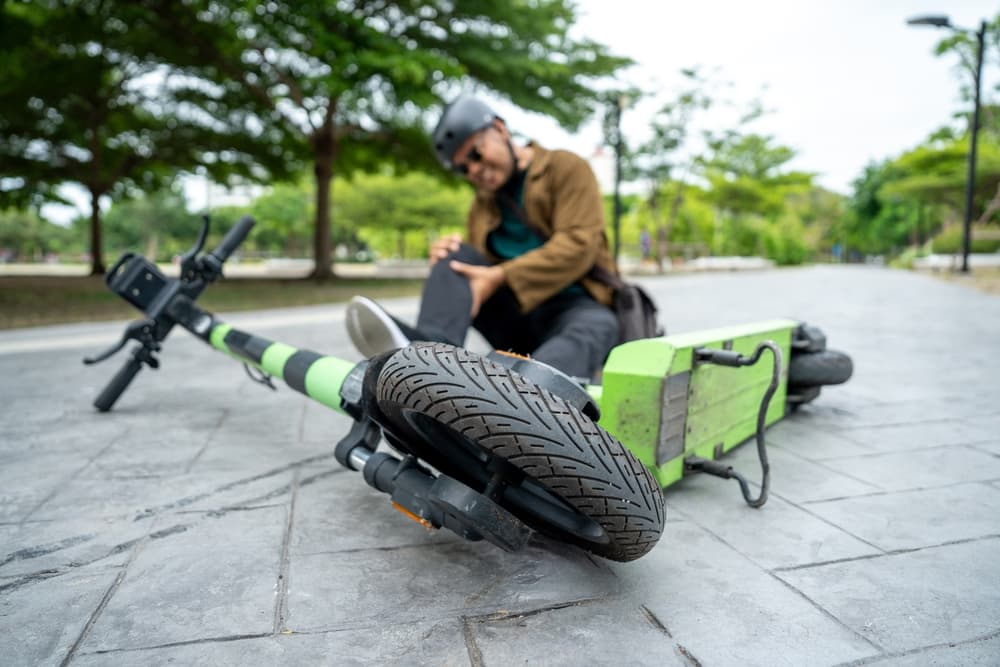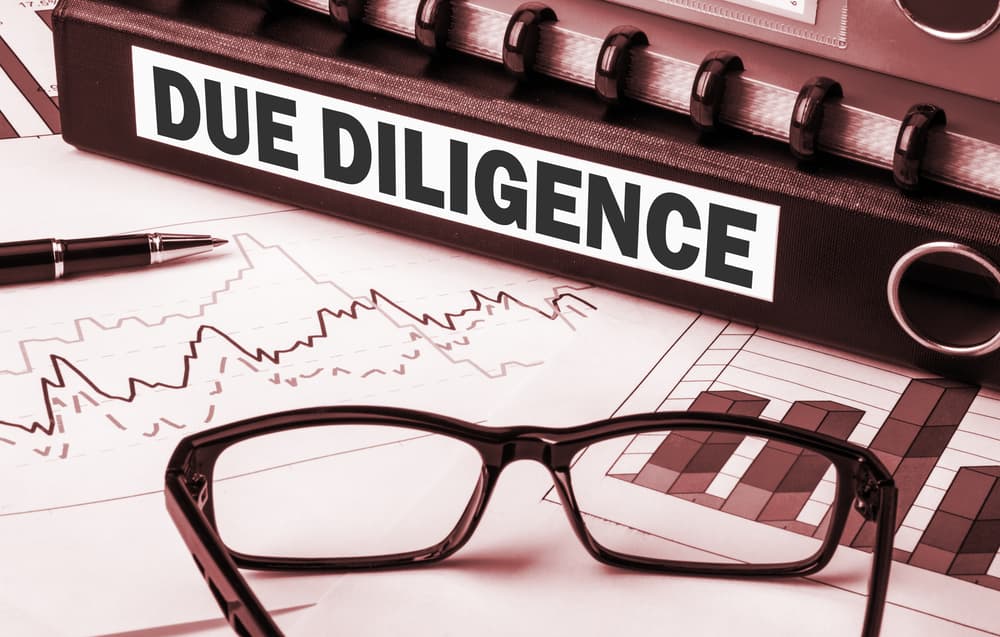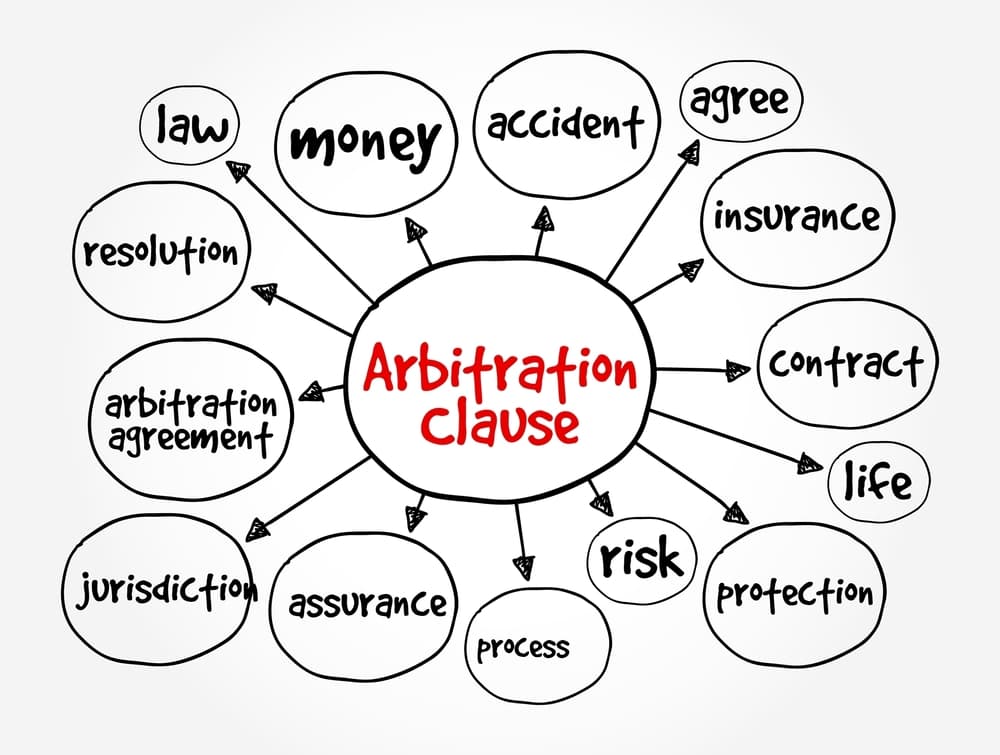Electric scooters and shared bicycles have become incredibly popular ways to get around Chicago and other Illinois communities, offering convenience and a fresh way to experience the city. But beneath the fun, a serious question often arises for accident victims… Can you sue a scooter or bikeshare company after an accident?
A Chicago Scooter Accident Lawyer can help you determine whether the companies that operate these scooters or bikes, like Lime, Bird, or Divvy, may be liable for your injuries and financial losses in some circumstances, but it's rarely simple. These cases involve unique legal challenges, including complex liability issues and often mandatory arbitration clauses.
Let’s review the common causes of scooter and bikeshare accidents, identify who might be responsible for your injuries, and outline the critical steps to take to protect your rights and pursue the compensation you deserve.
The Rise of Micromobility and the Risk of Accidents
Micromobility devices like electric scooters and shared bicycles have become popular in urban centers. Divvy bikes have been a staple in Chicago for years, and e-scooters from companies like Lime and Bird have become a common sight, especially during warmer months. While they offer an eco-friendly and convenient transportation option, their rise has unfortunately coincided with a significant increase in accidents and injuries.
According to data from the University of California, San Francisco, e-scooter injuries rose from 8,566 in 2017 to 56,847 in 2022, and e-bike injuries from 751 to 23,493 over the same period. Many of these incidents result in serious injuries, including broken bones, concussions, and traumatic brain injuries, often due to falls, loss of control, or collisions with other vehicles.
A concerning statistic highlights that nearly half of injured e-scooter riders suffered head injuries, with only a small fraction wearing helmets.
Common Causes of Scooter and Bikeshare Accidents

Accidents involving scooters and bikes can occur in various ways, often due to a combination of factors:
- Negligent Drivers: This is the most common cause. Drivers of cars, trucks, and motorcycles often fail to see scooter or bike riders, leading to collisions.
- Defective Equipment: The scooter or bike itself could have a defect that leads to an accident.
- Poor Maintenance: Even if not inherently defective, a scooter or bike might be poorly maintained by the company, leading to dangerous conditions.
- Hazardous Road Conditions: Potholes, uneven pavement, cracked asphalt, gravel, or construction debris can all cause a scooter or bike rider to lose control and crash. While not directly the fault of the scooter company, these conditions can contribute to an accident.
- Pedestrian or Other Rider Negligence: In some cases, a pedestrian stepping into a scooter's path or another scooter/bike rider acting recklessly could lead to a collision.
- Rider Inexperience/Negligence: While not the focus of a claim against the company, rider error can also contribute. However, even if a rider is partially at fault, they may still have a claim if another party's negligence contributed to their injuries, especially under Illinois' modified comparative negligence rules.
Identifying Responsible Parties Beyond the Rider
When you're injured in a scooter or bikeshare accident, it's crucial to identify all potentially liable parties to ensure you can pursue full compensation. This is where these cases become complex.
The Scooter or Bikeshare Company Itself

While the companies (like Lime, Bird, or Divvy) often try to limit their liability through user agreements and by classifying riders as independent operators, there are circumstances where they can be held directly responsible:
- Negligent Maintenance: If the company failed to properly inspect, maintain, or repair its fleet, and this negligence led to a malfunction causing your accident, the company could be liable. For instance, if a scooter's brakes were known to be faulty but it was still deployed, the company could be held responsible.
- Defective Design or Manufacturing: If the scooter or bike itself had a fundamental design flaw or a manufacturing defect that made it inherently unsafe, the company (or the manufacturer if it's a third party) could be liable under product liability laws. This often falls under "strict liability," meaning you don't necessarily have to prove negligence, only that the defective product caused your injury.
- Failure to Warn: If the company failed to adequately warn riders about known dangers or proper usage, for example, advising against riding on sidewalks where prohibited, or warning about weight limits, and this failure contributed to an accident.
- "Public Nuisance" Claims: Some lawsuits against scooter companies allege that by "dumping" their devices on public streets without proper oversight, they create a dangerous "public nuisance" that contributes to accidents. This type of claim seeks to hold them broadly responsible for the hazardous conditions their business model creates.
- Negligent Operation/Deployment: If the company's operational practices, such as deploying scooters in unsafe locations or failing to retrieve damaged devices quickly, contribute to accidents.
Other Potentially Liable Parties
- Negligent Drivers: If a car, truck, or motorcycle driver caused the accident, their personal auto insurance would be the primary source of compensation. This is often the clearest path to recovery.
- Manufacturers: If the accident was caused by a manufacturing or design defect, the company that produced the scooter or bike components could be held liable.
- Property Owners/Municipalities: If the accident was caused by a hazardous road condition (e.g., a large pothole, broken sidewalk, or poor street design), the municipality (like the City of Chicago) or a private property owner might be held responsible under premises liability laws. Suing a municipality often involves unique procedural requirements and shorter deadlines, so prompt action is crucial.
- Other Riders/Pedestrians: If another scooter rider, bicyclist, or pedestrian acted negligently and caused your accident, you could potentially file a claim against them and their personal insurance.
What to Do Immediately After a Scooter or Bikeshare Accident
The moments following an accident are critical for preserving evidence and protecting your legal rights.
1. Prioritize Your Safety and Seek Medical Attention
- Move to Safety: If possible and safe, move yourself and the scooter/bike out of the flow of traffic to prevent further injury.
- Call 911: Immediately report the accident to law enforcement (Chicago Police if you're in the city) and request emergency medical assistance, even if your injuries seem minor. Adrenaline can mask pain, and some serious injuries, like concussions or internal bleeding, may not be immediately apparent.
- Accept Medical Transport/Follow-Up: If paramedics recommend transport to an emergency room, go. If not, see a doctor or visit an urgent care clinic as soon as possible after leaving the scene. Delaying medical attention can not only worsen your injuries but also allow insurance companies to argue that your injuries were not a direct result of the accident. Keep meticulous records of all medical appointments, diagnoses, treatments, and bills.
2. Document the Scene and Gather Evidence
If your condition allows, gather as much evidence as possible at the scene:
- Take Photos and Videos: Use your smartphone to capture:
- The position of the scooter/bike and any other vehicles involved.
- Damage to the scooter/bike, personal belongings, and other vehicles.
- The surrounding area: road conditions (potholes, cracks, debris), traffic signs, signals, and visibility issues.
- Any visible injuries you sustained.
- The unique ID number of the scooter or bike.
- Exchange Information:
- If another vehicle was involved, get the driver's name, contact information, insurance details, and license plate number.
- If there were other riders or pedestrians involved, get their contact information.
- Identify Witnesses: Ask any independent witnesses for their names and phone numbers. Their unbiased accounts can be invaluable.
- Note Key Details:
- Date, time, and exact location of the accident.
- Weather and road conditions.
- The direction of travel of all parties.
- Get a Police Report: If police respond, obtain the police report number. This official document can contain important details about the accident, including responding officers' observations and citations issued.
3. Report the Accident to the Scooter/Bikeshare Company (Carefully)
- Use the App: Most companies have an in-app feature for reporting accidents. Report the incident as soon as you can.
- Be Factual and Brief: Provide only factual details of the accident. Do not speculate about fault or the extent of your injuries.
- Screenshot Trip Details: Take screenshots of your rental agreement, trip details, and any error messages from the app. This proves you were an active user and provides the specific device ID.
4. Important "Don'ts" After an Accident
- Do NOT Admit Fault: Never apologize or make any statement that could be interpreted as admitting fault, even if you feel partially responsible. Let the investigation determine liability.
- Do NOT Give a Recorded Statement: You will likely be contacted by insurance adjusters. Politely decline to give any recorded or written statements without first consulting with a legal professional. Anything you say can be used against you.
- Do NOT Sign Anything: Do not sign any medical releases, settlement offers, or other documents from any insurance company or the scooter company without having them reviewed by an attorney. You could inadvertently waive your rights.
- Do NOT Accept a Quick Settlement: Early offers are almost always lowball offers designed to get you to settle before you know the full extent of your injuries and long-term damages.
- Do NOT Post on Social Media: Refrain from discussing the accident or your injuries on social media. Insurance companies frequently monitor social media accounts for anything they can use to discredit your claim. Keep your privacy settings strict.
Navigating the Legal Challenges: Arbitration Clauses and Liability
One of the most significant hurdles in suing a scooter or bikeshare company is the presence of an arbitration clause in their terms of service.
Arbitration Clauses: A Major Hurdle

When you sign up to use a shared scooter or bike, you almost certainly agree to terms of service that include an arbitration clause. This clause typically states that any disputes arising from your use of the service must be resolved through private, binding arbitration rather than through a traditional lawsuit in court.
- Enforceability in Illinois: In Illinois, arbitration clauses are generally enforceable under both federal and state law (the Federal Arbitration Act and the Illinois Uniform Arbitration Act). If you agree to such a clause, a court will likely compel you to go to arbitration rather than allow you to file a lawsuit.
- Impact on Your Case: Arbitration can be a different experience from court. While it can sometimes be faster, it may also lack the transparency of public court proceedings, and the rules of evidence and discovery can be more limited. The arbitrator's decision is often final and difficult to appeal.
- Exceptions: There can be narrow exceptions to the enforceability of arbitration clauses, such as if the contract was entered into fraudulently or if the clause is deemed "unconscionable" (grossly unfair). Additionally, if you were a pedestrian or other third party injured by a scooter or bikeshare device, you did not agree to the terms of service, so the arbitration clause would not apply to you.
Proving Liability in Complex Cases
Even if you can overcome an arbitration clause, proving liability against a large corporation or identifying the specific defect that caused your accident can be challenging.
- Evidence Gathering: You need strong evidence to prove negligence or a defect. This includes accident reports, medical records, photographic evidence of the scene and the device, maintenance logs (which the company may resist providing), and potentially expert testimony from accident reconstructionists or mechanical engineers.
- Illinois Comparative Negligence: Illinois follows a "modified comparative negligence" rule. If you are found to be partially at fault for the accident, your compensation will be reduced by your percentage of fault. If you are found to be more than 50% at fault, you cannot recover any damages. Insurance companies and defense lawyers will try to shift as much blame as possible onto you.
How an Experienced Scooter or E-bike Attorney Can Help
Given the unique complexities of scooter and bikeshare accident claims, navigating them alone can be overwhelming and may jeopardize your ability to recover fair compensation.
A legal professional specializing in micromobility accidents can:
- Evaluate Your Case Thoroughly: They can analyze the facts of your accident, identify all potentially liable parties, and determine the strength of your claim against the scooter/bikeshare company, a negligent driver, or other entities.
- Navigate Arbitration Clauses: They can assess the enforceability of any arbitration clause in your terms of service and advise you on your options, including whether there are grounds to challenge the clause or how to effectively proceed in arbitration. For injured pedestrians or third parties, they will ensure your case proceeds in court.
- Investigate and Gather Evidence: They will meticulously gather all necessary evidence, including accident reports, medical records, photos/videos, maintenance logs (potentially through subpoenas), and potentially engage accident reconstructionists or product defect experts.
- Handle Communication with All Parties: They will manage all communications with insurance companies, defense attorneys, and the scooter/bikeshare companies, protecting you from aggressive tactics and ensuring you do not make statements that could harm your claim.
- Accurately Calculate Your Damages: They will work to ensure all your damages are accounted for, including current and future medical expenses, lost wages, diminished earning capacity, pain and suffering, emotional distress, and property damage.
- Negotiate for Fair Compensation: They are skilled negotiators who will advocate aggressively on your behalf to achieve a fair settlement, whether through direct negotiation or arbitration.
- Litigate if Necessary: If a fair settlement cannot be reached, they are prepared to file a lawsuit (if not bound by arbitration) and fight for your rights in court.
- Ensure Timely Action: They will ensure your claim is filed within Illinois' strict statute of limitations, which for most personal injury claims is generally two years from the accident date. Missing this deadline can permanently bar your claim.
When You Need a Law Firm After a Scooter or E-Bike Accident, Trust Legal Rideshare Injury Lawyers
If you or a loved one has been injured in a scooter or bikeshare accident in Chicago or any Illinois community, you are likely facing significant physical, emotional, and financial challenges. The legal landscape surrounding these newer forms of transportation is complex, and you deserve a knowledgeable advocate who understands the nuances of micromobility accidents and is prepared to fight for your rights.
Contact LegalRideshare Injury Lawyers today at (312) 767-7950 for a free, no-obligation consultation. As a leading law firm singularly dedicated to rideshare and gig economy accidents, including scooter and bikeshare incidents, we have the skill and resources to navigate these unique cases. We're here 24/7 to listen to your story, explain your options, and help you understand how we can secure the compensation you need to recover and rebuild your life.